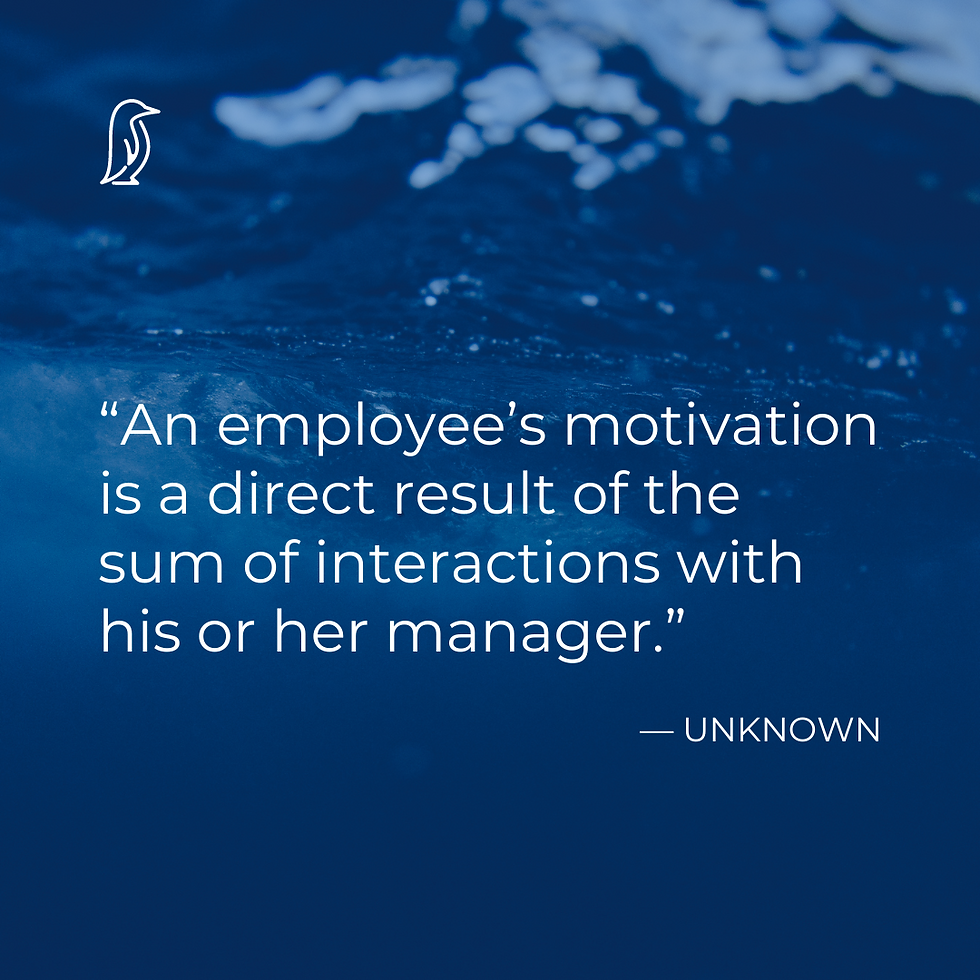How Middle Management Drives Productivity And Improves Employee Satisfaction

Table of Contents
Fostering a Positive and Productive Work Environment
A positive work environment is not a perk; it's a necessity for optimal productivity and high employee retention. Effective middle management plays a pivotal role in cultivating this environment.
Creating a Culture of Trust and Open Communication
Trust and open communication are foundational elements of a healthy workplace. Middle managers should actively promote:
- Open-door policies: Encourage employees to approach them with concerns, questions, or ideas without hesitation.
- Regular team meetings: These provide platforms for updates, brainstorming, and addressing any challenges proactively.
- Transparent communication: Keeping employees informed about company goals, performance metrics, and any significant changes builds trust and reduces uncertainty.
- Anonymous feedback mechanisms: Implementing suggestion boxes or anonymous surveys allows employees to share concerns without fear of reprisal.
- Regular one-on-ones: Dedicated time for individual check-ins fosters stronger relationships and allows for personalized feedback and support.
Promoting Work-Life Balance and Employee Well-being
Employee well-being directly impacts productivity and job satisfaction. Middle managers can contribute significantly by:
- Recognizing employee contributions: Acknowledging hard work and achievements, both big and small, boosts morale and motivation.
- Preventing burnout: Encouraging breaks, promoting work-life balance, and addressing workload imbalances are crucial.
- Promoting mental health: Offering access to mental health resources, flexible work arrangements, and mental health days demonstrates genuine care for employees' well-being.
- Wellness programs: Initiatives promoting physical and mental health, such as gym memberships or mindfulness sessions, enhance overall employee well-being.
Effective Communication and Collaboration Strategies
Effective communication is the lifeblood of any successful organization, and middle management is central to its flow.
Clear Communication of Goals and Expectations
Middle managers translate high-level strategic goals into actionable tasks for individual contributors. This requires:
- SMART goals: Setting Specific, Measurable, Achievable, Relevant, and Time-bound goals provides clarity and direction.
- Actionable task breakdown: Dissecting larger goals into manageable tasks ensures everyone understands their role and contributions.
- Regular check-ins and feedback: Consistent communication keeps employees informed, addresses challenges promptly, and maintains momentum.
Facilitating Collaboration and Teamwork
Middle managers foster collaboration by:
- Creating a collaborative environment: Promoting open dialogue, teamwork, and knowledge sharing.
- Conflict management: Effectively mediating disagreements and encouraging constructive dialogue among team members.
- Utilizing collaborative tools: Implementing project management software, communication platforms, and other tools to streamline workflows and communication.
Performance Management and Employee Development
Effective performance management and employee development are critical for individual and organizational success.
Setting Clear Performance Metrics and Providing Regular Feedback
Middle managers ensure fair and constructive performance evaluations by:
- Objective metrics: Using quantifiable data to assess employee performance, minimizing bias and promoting fairness.
- Constructive feedback: Delivering regular feedback, both positive and constructive, to guide employee development and performance improvement.
- Addressing performance issues promptly: Identifying and addressing performance gaps early on prevents larger problems later.
Investing in Employee Growth and Development
Middle management plays a key role in nurturing talent within the organization:
- Talent identification: Recognizing and supporting employees with high potential.
- Training and development programs: Offering opportunities for skill enhancement and career progression.
- Mentorship and coaching: Providing guidance and support to help employees grow and develop their skills.
Conclusion: The Impact of Middle Management on Productivity and Employee Satisfaction
In conclusion, effective middle management is not merely a layer of the organizational structure; it is the engine driving productivity and improving employee satisfaction. By fostering a positive work environment, championing effective communication, implementing robust performance management systems, and investing in employee development, middle managers significantly impact overall organizational success. They bridge the crucial gap between senior leadership and frontline employees, translating strategic goals into tangible results while nurturing a highly engaged and productive workforce. Invest in your middle management team today and see the positive impact on productivity and employee satisfaction. Improving middle management practices is an investment in the future of your organization.

Featured Posts
-
 Pressemitteilung Pne Ag Veroeffentlicht Gemaess 40 Abs 1 Wp Hg
Apr 27, 2025
Pressemitteilung Pne Ag Veroeffentlicht Gemaess 40 Abs 1 Wp Hg
Apr 27, 2025 -
 Blue Origin Cancels Launch Subsystem Issue Halts Flight
Apr 27, 2025
Blue Origin Cancels Launch Subsystem Issue Halts Flight
Apr 27, 2025 -
 Resultados Wta 1000 Dubai Paolini Y Pegula Fuera
Apr 27, 2025
Resultados Wta 1000 Dubai Paolini Y Pegula Fuera
Apr 27, 2025 -
 Hhss Controversial Choice Anti Vax Advocate To Examine Debunked Autism Vaccine Connection
Apr 27, 2025
Hhss Controversial Choice Anti Vax Advocate To Examine Debunked Autism Vaccine Connection
Apr 27, 2025 -
 Analyzing Grand National Horse Fatalities 2025 Perspective
Apr 27, 2025
Analyzing Grand National Horse Fatalities 2025 Perspective
Apr 27, 2025
